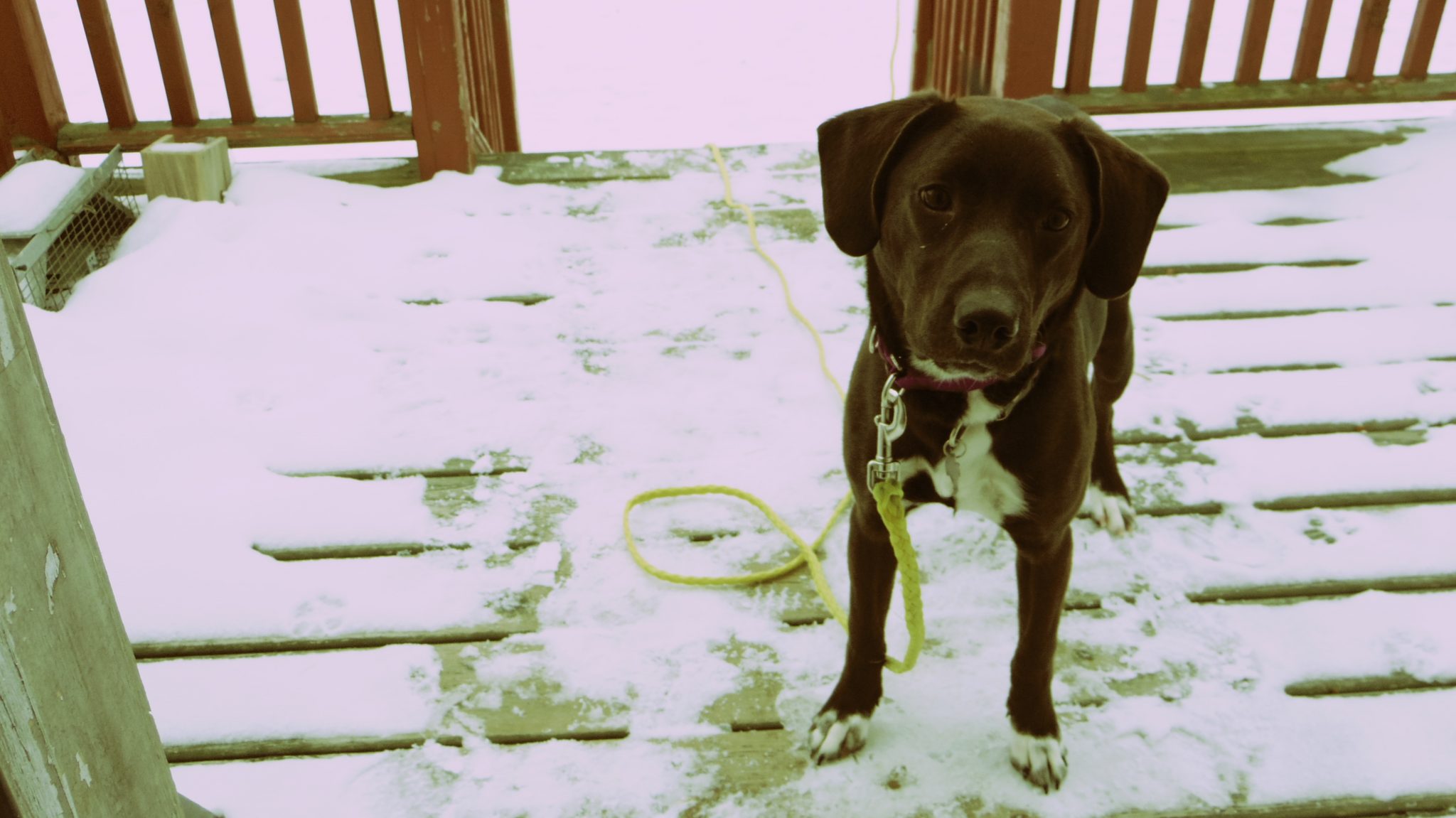This will be the last post in this series. We appreciate all those who have supported us and read about our experience! Click here to view part 5
An Adoption Story Part 6 – Reflections and Advice
We have come a long way, but still have quite a way to go! It’s hard to reflect while still in the midst of this but there have been several lessons I (we) have taken away from this experience at this point that we think might be beneficial for others considering adopting a rescue dog.
At this point, I don’t think I’d adopt a rescue who hasn’t had a solid bit of time with a foster, so the foster can give me more accurate information on the pup’s behavior and personality. The housebreaking was a huge setback for us and Sadie continues to struggle with it to this day, especially when we take her somewhere, often giving no sign that she has to “go”. It’s been dependent on us to establish a routine and keep to it so she doesn’t potty in the house.
Based on our experience, we would urge anyone to consider these points:
- Ask the rescue or foster several specific questions: Has this dog ever been adopted and returned? How long has the foster person had this dog? Do they know why it ended up with the rescue?
- Rescue dogs come with their own set of very unique challenges. Despite their best efforts, a rescue organization may not give you entirely accurate information about a dog simply because they don’t know the details and have to give you a best guess. Even if the dog is several years old, it may still be new to them and they weren’t given much or any history when it entered their custody.
- A foster may not be able to give you accurate or even any information on the personality of
 a dog. For example, we were told Sadie was low to medium energy; her personality is the complete opposite. You may find that you have a hard time bonding with a dog that has a temperament or energy level that doesn’t “fit” with yours.
a dog. For example, we were told Sadie was low to medium energy; her personality is the complete opposite. You may find that you have a hard time bonding with a dog that has a temperament or energy level that doesn’t “fit” with yours. - Ask the rescue or foster if the dog was raised or fostered with other dogs. If the dog (like Sadie) has lived much of, or their entire, life with other dogs to interact with, they’re going to have a tougher time adapting to surroundings without that extra stimulus and energy outlet that another dog provides.
- Training is imperative. Expect a lot of work and training. (And then expect more!) You may need to give a rescue pup several months to get used to you and their new environment.
- Rescues charge an adoption fee which in many cases is non-refundable. You may be taking a financial risk and if it doesn’t work, you’re out the adoption fee.
This is the reality of adopting a rescue dog, especially one that’s not a very young puppy. These points are things to note and consider but should by no means dissuade you altogether from considering adoption. Many people who have adopted rescues have been extremely happy with the process and the outcome. There are individuals who are extremely dedicated and find that fostering or adopting rescue dogs brings them deep personal fulfillment. Chris and I have a new respect for those individuals, but don’t beat yourself up if you know or discover that you’re not one of those people.
We have grown individually and together through this process. Our communication and commitment, and enjoyment of Sadie, have grown as well. We are still unsure of what the future holds for us and Sadie but we remain hopeful!
Recent Posts
About Us
Ann Arbor Animal Hospital is a locally-owned animal hospital operating for over 90 years in Ann Arbor, MI.
